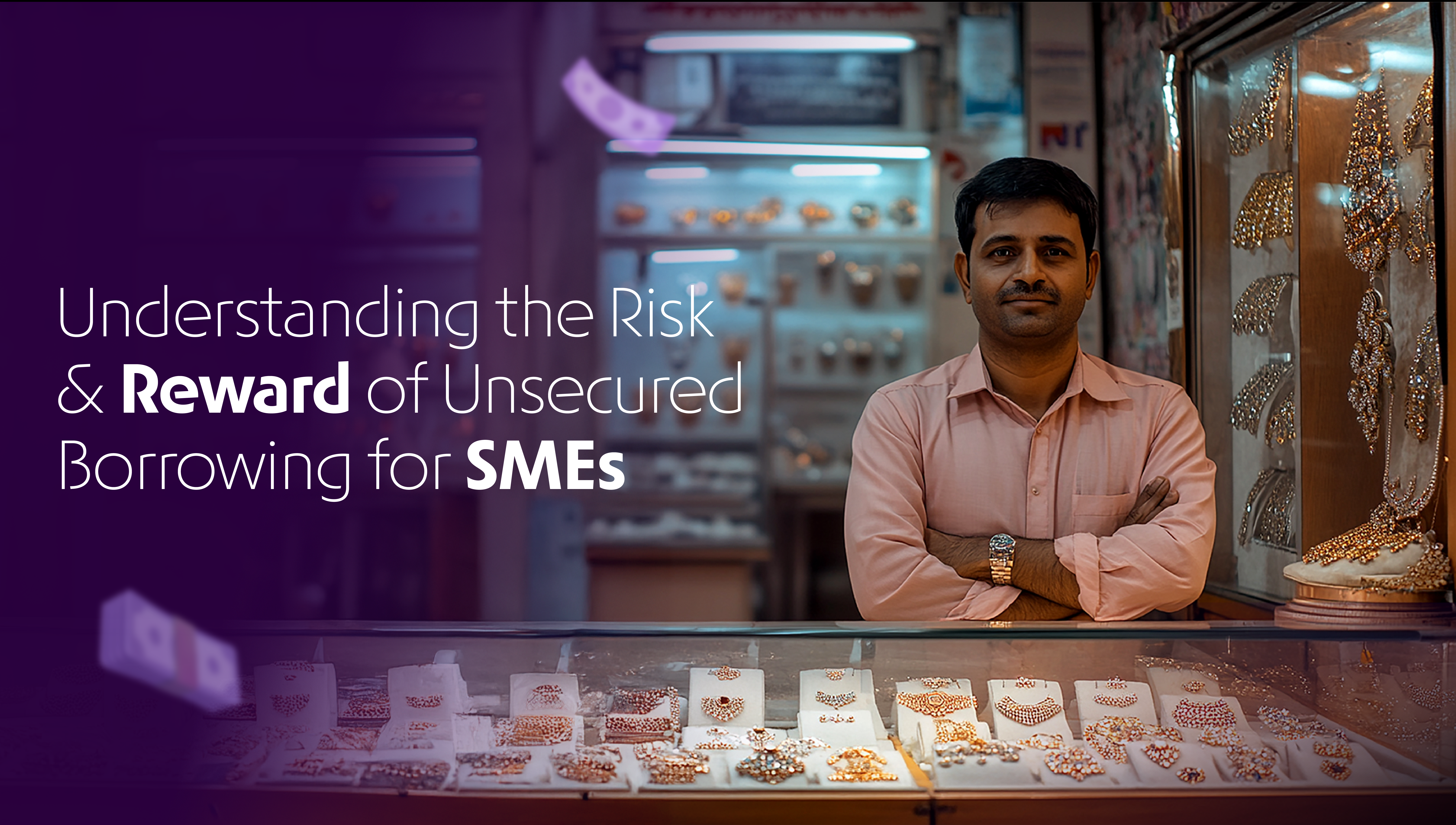Small business financing options are the lifeblood of any growing Indian enterprise. Whether you’re a startup in Bengaluru needing working capital, an SME in Mumbai looking to expand production, or a service provider in Chennai aiming for a digital upgrade, securing the proper funding can be the difference between stagnation and scale.
However, the process of securing a business loan, especially one with favorable terms, can be akin to navigating a complex maze of paperwork, terms, and conditions.
Don’t worry. This comprehensive guide will equip you with the knowledge, tips, and strategies needed not just to get approved, but to secure the best business loans for your company’s unique needs.
Understanding the Landscape: Small Business Financing Options
Before you apply, it’s crucial to know the different avenues available. The best option for you depends on your company’s size, age, revenue, and funding requirement.
1. Traditional Bank Loans
These are the typical term loans offered by major public and private sector banks (like SBI, HDFC Bank, ICICI Bank, etc.).
- Pros: Generally offer the lowest-interest business loans and the longest repayment tenures.
- Cons: Require significant collateral, involve a lengthy approval process (often 2-3 months), and have strict eligibility criteria focusing on profitability and stability. This isn’t ideal for young, fast-growing businesses.
2. Non-Banking Financial Company (NBFC) Loans
NBFCs offer greater flexibility than banks, often catering to businesses that may not meet stringent bank criteria.
- Pros: Faster processing times and less rigid documentation. They are a good middle ground.
- Cons: Interest rates are typically higher than those of banks.
3. Fintech & Digital Lending Loans
The fastest-growing segment, digital lenders use technology to assess creditworthiness based on data like bank statements, GST filings, and business transaction history, rather than just historical profit.
- Pros: Quickest disbursal (often within 48-72 hours), minimal documentation, and an entirely digital application process. Many offer collateral-free business loans.
- Cons: Interest rates can vary widely. The loan amount might be capped compared to secured bank loans.
5 Critical Factors for Business Loan Eligibility
Lenders primarily look at five key areas when deciding to approve your loan and determine the interest rate. Mastering these will significantly increase your chances of securing low-interest business loans.
1. Your Business Vintage and Stability
Lenders prefer businesses that have been operational for at least 1-3 years with a stable revenue stream. A longer operational history signifies lower risk.
- Pro Tip: If your business is less than a year old, focus on showing strong month-on-month growth and reliable cash flow through invoices and bank statements.
2. The Credit Score for Business Loans (CIBIL Score)
Your business’s CIBIL Score (or the score of the promoters) is paramount. A high score (typically 750 and above) is essential for getting the best rates. It demonstrates a history of responsible debt management.
- Actionable Insight: Check your personal and business CIBIL score regularly. If your credit score is low, consider paying down existing debts or negotiating with creditors to clear any defaults before applying for a new loan.
3. Annual Turnover and Cash Flow
Lenders want assurance that you can comfortably repay the loan. They typically require a minimum annual turnover (e.g., ₹12 Lakh to ₹50 Lakh, depending on the lender). More importantly, they scrutinise your net operating cash flow.
- Realistic Example: If you’re asking for a ₹10 Lakh loan, and your monthly net cash flow is ₹2 Lakh, a lender will view your repayment capacity favorably. A sudden dip in sales or too much existing debt is a red flag.
4. Collateral Requirements for Loans
While many modern fintechs offer collateral-free business loans, larger bank loans (for amounts above ₹50 Lakh) usually require assets—such as property, fixed deposits, or equipment—as security.
- Strategy: If you have valuable unencumbered assets, consider a secured loan for a lower interest rate. If you prefer flexibility and speed, opt for unsecured loans from digital lenders.
5. Documentation and Business Proof
An organised application package speeds up approval. Essential documents usually include:
- KYC documents for promoters (Aadhaar, PAN).
- Business registration proof (GST registration, Udyam Aadhaar).
- Last 6–12 months of bank statements.
- Latest two years of audited financial statements (P&L and Balance Sheet).
- GST returns (GSTR-3B/GSTR-1).
Tips to Get Business Funding: Securing Low-Interest Loans
Securing the approval is one hurdle; getting a competitive interest rate is another. Here are tips to get business funding at the best possible terms:
1. Apply for the Right Loan Amount
Only apply for the amount you genuinely need and can comfortably service. Over-borrowing not only increases your interest burden but can also raise red flags about your financial planning, potentially resulting in a higher interest rate.
2. Maintain Spotless Financial Records
In the digital lending world, consistency is key. Ensure there are no unexplained spikes or dips in your bank account or GST filings leading up to your application. Digital lenders use algorithms that heavily rely on the consistency of transactional data.
3. Compare Different Loan Products
Don’t settle for the first offer. Compare the Annual Percentage Rate (APR)—which includes the interest rate and all associated fees (processing fee, documentation fee)—across 3-4 different lenders. A slightly lower interest rate could save you lakhs over a 3-year tenure.
4. Build a Strong Relationship with a Lender
If you’ve successfully repaid a small loan (e.g., a working capital loan), your chosen lender will often offer you larger loans at better rates next time. This demonstrates proven repayment behaviour and establishes trust.
5. Leverage Your Digital Footprint
For fintech loans, your business’s digital performance (e.g., sales volume through online channels, transaction history on payment gateways) is a powerful asset. Highlight any integration that allows the lender to see your real-time revenue performance.
Get Approved Faster with OPEN Capital!
At OPEN Capital, we understand that Indian SMEs need fast, flexible, and accessible financing. We believe your business potential should not be tied down by assets or lengthy processes.
That’s why we offer collateral-free business loans up to ₹30 Lakh via a fully digital application process. We leverage smart data analytics to assess your creditworthiness based on your real-time business performance, ensuring quick approvals and competitive rates.
Frequently Asked Questions (FAQ)
What is the minimum CIBIL score required for a business loan?
A strong CIBIL score of 750 or above is generally considered excellent and significantly improves your chances of securing low-interest business loans. Lenders may consider scores between 700 and 750, but the interest rate will likely be higher.
Can a new startup get a business loan?
Yes, but it’s more challenging. Startups (under 1 year) are typically eligible for smaller loans or lines of credit, often based on the promoters’ personal credit scores and collateral. Government schemes like MUDRA or specialized fintech products often provide the most viable small business financing options for new ventures.
Is collateral required for all business loans?
No. While large loans from traditional banks typically require collateral, many digital lenders and NBFCs, like OPEN Capital, offer collateral-free business loans (unsecured loans) up to a certain limit (e.g., ₹30 Lakh) based on your cash flow and financial records.
How long does the business loan approval process take?
For traditional banks, the processing time can take 4-8 weeks. For digital lenders offering quick tips to get business funding, the entire process, from application to disbursal, can often be completed within 48 to 72 hours.
What is the difference between an interest rate and an APR?
The interest rate is the cost of borrowing the principal amount. The Annual Percentage Rate (APR) is the actual annual cost of the loan, as it includes the interest rate plus all additional fees (like processing fees, legal fees, etc.) rolled into a single percentage. Always compare the APR when searching for the best deal.
How is the EMI for a business loan calculated?
Equated Monthly Installment (EMI) is calculated based on the principal loan amount, the interest rate, and the loan tenure. The longer the tenure, the lower the EMI, but the higher the total interest paid. You can use an online EMI calculator to test different scenarios.



